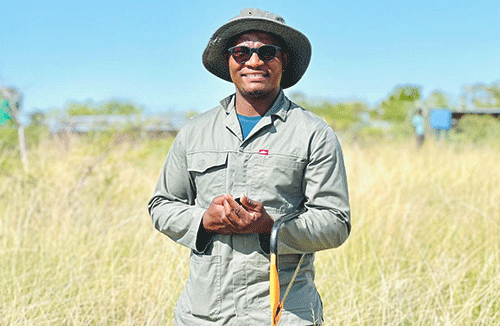Willem Amutenya
As young individuals, we cordially embrace the establishment of the abattoir in Rundu, Kavango East region. This undertaking stands as a commendable and noble investment by the government within the realm of the agricultural sector.
It instils within us a sense of optimism and fortitude to allocate our valuable resources, time and dedication to the field of agribusiness.
It is especially pertinent for young, aspiring farmers, particularly those venturing into livestock production, to seize this opportunity, given the established market for livestock supply and value-added products.
I strongly urge unemployed youth to actively engage in this market and leverage the financial support facilitated by the government through Agribank and other financial institutions to bolster their agricultural endeavors.
It is high time we witness the fruition of our local meat products, produced within our territories, elegantly packaged and readily accessible on local shelves for consumption by our community.
Nonetheless, my concerns are deeply rooted in the execution of the Code of Good Practice on Preference recently enacted by the Ministry of Finance & Public Enterprises, effective as of 31 January 2023.
The Code of Good Practice on Preference aims, amongst others, to grant exclusive preferences to categories of local suppliers through reservation of certain procurement of goods, works and services.
The notice enforces that the Procurement Board or public entities must include provisions in their bidding documents specifying that raw meat of cloven-hoofed animals inclusive of beef, sheep, goat, pork or game to be supplied north of the veterinary cordon fence must be sourced from suppliers north of the veterinary cordon fence.
This is indeed a great opportunity for northern farmers.
While this represents a laudable intervention by the government designed to foster a market for northern farmers, it regrettably lacks a robust tracking system.
This raises the critical question of how we can ensure the veracity of business entities, contracted by the government to supply agricultural products such as beef, eggs and poultry in the northern regions, in their procurement from our local farmers.
This uncertainty engenders anxiety among young farmers who are unable to access a reliable market and consequently poses a significant threat to local food production.
*Willem Amutenya is a youth leader and a part-time farmer, employed by the University of Namibia. He is an advocate of youth employment and local agribusiness.


